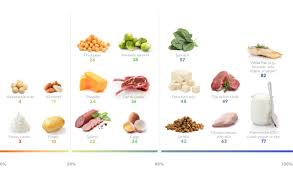
How to Manage Menstrual Pain Naturally
Menstrual pain is a common problem for many women. It can range from mild discomfort to severe pain that interferes with daily activities. While over-the-counter medications can provide some relief, there are also natural methods to manage menstrual pain effectively.
One of the most effective ways to control menstrual cramps naturally is through exercise. Regular physical activity helps improve blood circulation, which in turn reduces the intensity of menstrual cramps. Exercises such as walking, yoga, and swimming are particularly beneficial during menstruation as they help relax the uterine muscles and alleviate pain.
Diet plays an important role in managing menstrual pain as well. Consuming foods rich in omega-3 fatty acids like fish, nuts and seeds may reduce inflammation and ease menstrual cramps. Additionally, calcium-rich foods like dairy products or green leafy vegetables can help decrease muscle tension and thus relieve pain. Avoiding caffeine and alcohol around your period may also lessen the severity of cramps since these substances can exacerbate bloating and mood swings associated with menstruation.
Heat therapy is another natural remedy for menstrual discomfort. Applying a hot water bottle or heating pad on your lower abdomen aids in relaxing the contracting muscles in your uterus which are causing the pain. Warm baths not only offer heat therapy but also allow for relaxation which eases tension throughout your body.
Herbal remedies have been used for centuries to treat various ailments including menstrual cramps. Certain herbs such as chamomile, fennel seeds and ginger have anti-inflammatory properties that help soothe painful menstruation symptoms while also promoting overall wellness.
Acupuncture is another alternative treatment option worth considering if you’re looking for natural ways to manage period pains without medication side effects. Acupuncture involves inserting thin needles into specific points on your body to balance energy flow – this process has been shown to reduce inflammation and relieve chronic pain including dysmenorrhea (painful periods).
Maintaining good hydration levels by drinking plenty of water can also help reduce bloating and ease menstrual pain. In addition to water, herbal teas can be beneficial due to their calming and anti-inflammatory properties.
Lastly, adequate sleep is crucial for overall health and well-being, including managing menstrual pain. A lack of sleep can exacerbate feelings of discomfort and fatigue that often accompany menstruation.
In conclusion, while menstrual pain is a common issue among women, it doesn’t have to be debilitating. By incorporating natural remedies such as regular exercise, dietary changes, heat therapy, herbal treatments and acupuncture into your routine – you can manage your symptoms effectively without relying solely on over-the-counter medications. Always consult with a healthcare professional before starting any new treatment regimen for menstrual pain relief.
